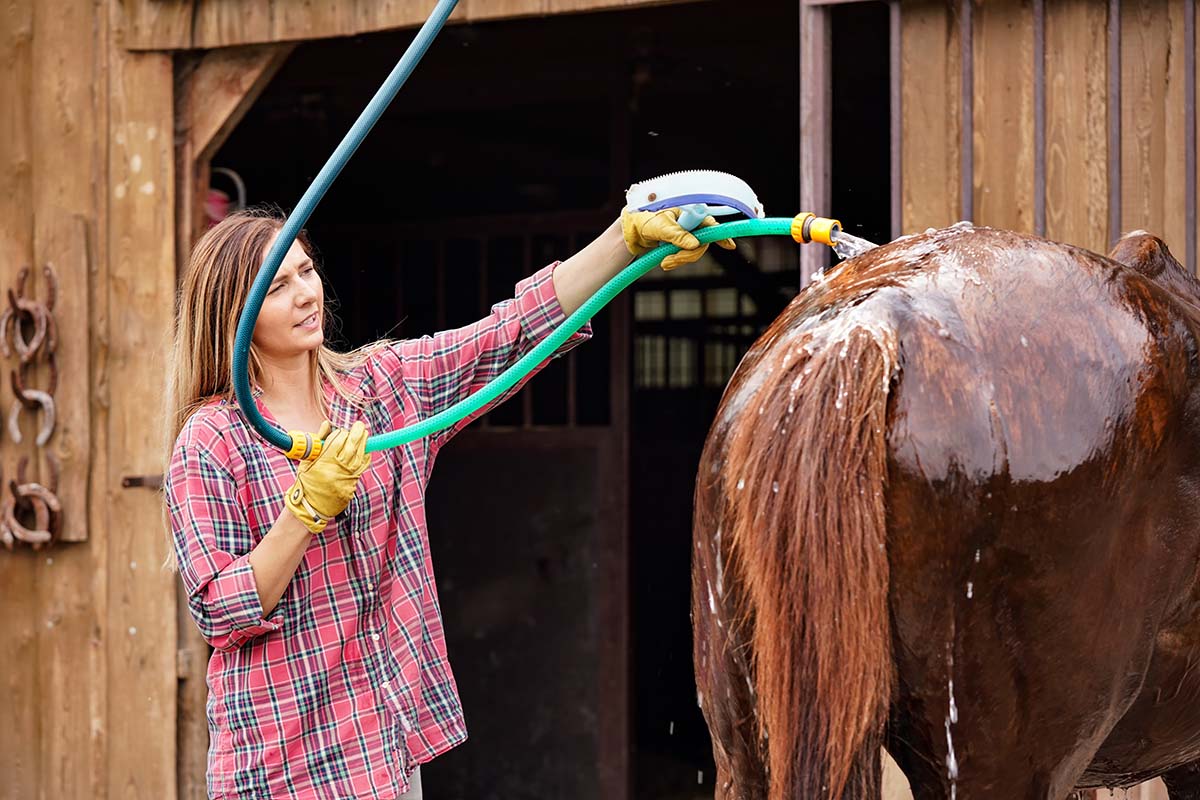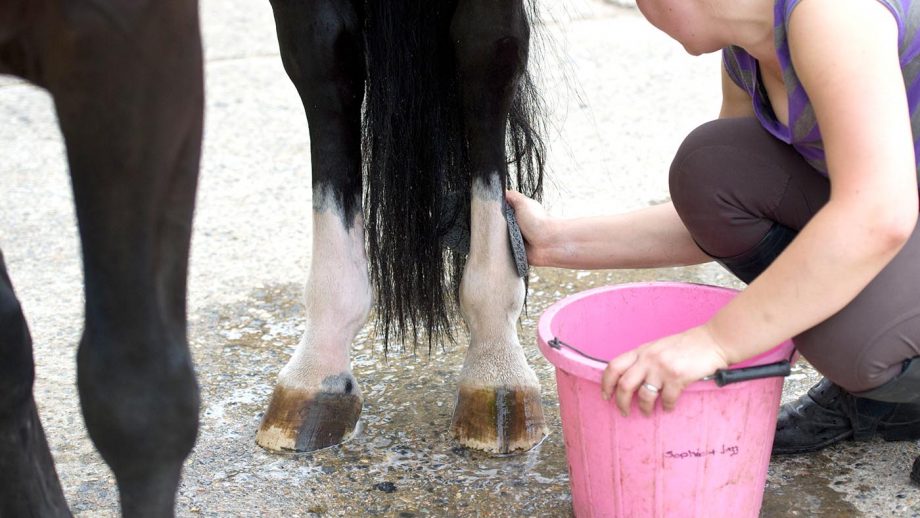In recent years, the question of sustainability and environmental impact has become increasingly important in various industries, including equine care. Many horse enthusiasts and caretakers are now asking: Are horse shampoos eco-friendly? With the growing demand for environmentally responsible products, it is essential to explore the eco-friendliness of horse shampoos and understand their impact on our planet.
Horse shampoos are commonly used to maintain the cleanliness and health of a horse’s coat. However, the ingredients and production processes involved in these products can significantly affect their environmental footprint. In this article, we will delve into the world of horse shampoos, examining their ingredients, benefits, and potential environmental impact.

The Rise of Eco-Friendly Horse Care
Eco-friendly horse care has gained popularity as people become more aware of the environmental impact of grooming products. Many companies are now focusing on developing sustainable and biodegradable shampoos that minimize harm to the environment. This shift towards eco-friendly options not only benefits the planet but also promotes the well-being of our equine companions.
Understanding Horse Shampoo Ingredients
To determine whether a horse shampoo is eco-friendly, it’s crucial to examine its ingredients. Conventional shampoos often contain synthetic chemicals, fragrances, and preservatives that can be harmful to both the environment and the horse’s skin. Eco-friendly alternatives, on the other hand, prioritize natural and biodegradable ingredients.
Some common eco-friendly ingredients include:
- Plant-based surfactants: Derived from renewable sources, these surfactants effectively cleanse the horse’s coat without causing harm to the environment.
- Essential oils: Natural oils like lavender, tea tree, and eucalyptus provide a pleasant fragrance and offer additional benefits such as soothing irritated skin.
- Aloe vera: Known for its moisturizing properties, aloe vera helps maintain the horse’s coat health while being gentle on the environment.
The Impact of Conventional Shampoos
Conventional horse shampoos often contain sulfates, parabens, and artificial fragrances, which can have detrimental effects on the environment. These chemicals can leach into water bodies, affecting aquatic life and disrupting ecosystems. Additionally, the production and disposal of such shampoos contribute to pollution and waste.
Eco-Friendly Alternatives and Their Benefits
Switching to eco-friendly horse shampoos offers numerous benefits, both for the environment and the horse’s health. By choosing products with biodegradable ingredients, we can reduce pollution and minimize our carbon footprint. Furthermore, eco-friendly shampoos are often gentler on a horse’s skin, reducing the risk of irritation and allergies.
How to Choose an Eco-Friendly Horse Shampoo
Selecting the right shampoo for your horse requires careful consideration of its ingredients and environmental impact. Here are some tips for choosing an eco-friendly option:
- Look for certifications: Products with certifications such as USDA Organic or EcoCert ensure that the shampoo meets specific environmental standards.
- Avoid harmful chemicals: Read the ingredient list and steer clear of sulfates, parabens, and synthetic fragrances.
- Research brands: Opt for reputable brands that prioritize sustainability and transparency in their production processes.
For more information on how to choose the right horse shampoo, you can visit this guide.
Proper Usage and Disposal
Using eco-friendly horse shampoos is only part of the equation. Proper usage and disposal practices are equally important in minimizing environmental impact. Here are some tips to follow:
- Use the recommended amount: Avoid overusing shampoo, as excess product can lead to unnecessary waste.
- Rinse thoroughly: Ensure all shampoo residues are rinsed off to prevent skin irritation and environmental contamination.
- Dispose responsibly: Empty shampoo bottles should be recycled, and any leftover product should be disposed of according to local regulations.
For detailed instructions on rinsing a horse after shampooing, refer to this resource.
Case Studies: Eco-Friendly Horse Shampoo Brands
Several brands have emerged as leaders in producing eco-friendly horse shampoos. Let’s take a closer look at a few notable options:
Brand A: Gentle Green
Gentle Green is renowned for its commitment to sustainability. Their shampoos are made from 100% natural ingredients and packaged in biodegradable containers. This brand prioritizes transparency, providing detailed information about their sourcing and production practices.
Brand B: EcoEquine
EcoEquine focuses on creating high-quality, eco-friendly grooming products. Their shampoos are free from harsh chemicals and are formulated to promote a healthy coat and skin. EcoEquine also supports environmental initiatives, donating a portion of their profits to conservation organizations.
For more insights on how to bathe your horse effectively, you can visit this external link.
Conclusion: Making Informed Choices
In conclusion, the question of Are horse shampoos eco-friendly? is crucial for responsible horse care. By opting for eco-friendly alternatives, we can significantly reduce our environmental impact while ensuring the well-being of our equine companions. Understanding ingredients, choosing reputable brands, and practicing proper usage and disposal methods are key steps in making informed choices.

FAQ Section
1. What makes a horse shampoo eco-friendly?
An eco-friendly horse shampoo typically contains natural, biodegradable ingredients and avoids harmful chemicals such as sulfates and parabens. These shampoos are designed to minimize environmental impact while maintaining the horse’s coat health.
2. Are eco-friendly shampoos as effective as conventional ones?
Yes, eco-friendly shampoos are formulated to be just as effective as conventional options. They clean the horse’s coat effectively while being gentle on the skin and the environment.
3. How can I tell if a shampoo is truly eco-friendly?
Look for certifications such as USDA Organic or EcoCert, and check the ingredient list for natural, biodegradable components. Researching the brand’s sustainability practices can also provide valuable insights.
This article contains affiliate links. We may earn a commission at no extra cost to you.








